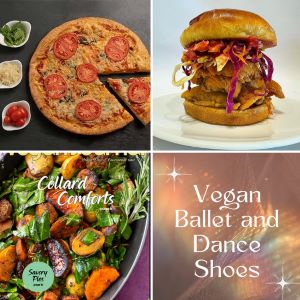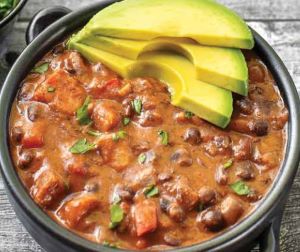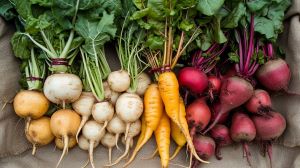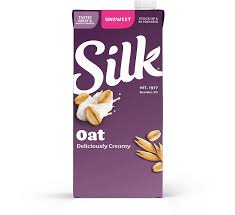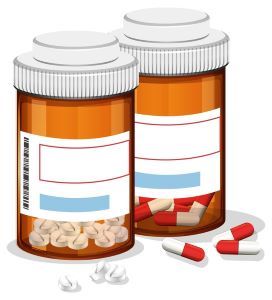Enjoy Cooking with Black Beans!
Hannah Kaminsky shares several delicious black bean-based vegan recipes in a previous issue of Vegan Journal. Enjoy Colombian Black Bean Soup, Mole Enchiladas, Black Bean Chipotle Chile, Loaded Spanish Sweet Potatoes, and Tex-Mex Pasta Salad.
Read the entire article here: https://www.vrg.org/journal/vj2023issue3/2023_issue3_modern_classics.php
To subscribe to Vegan Journal in the USA, see: https://www.vrg.org/member/2013sv.php
SOFT VEGAN DIETS AFTER DENTAL SURGERY
A VRG member recently had dental surgery and needed a soft vegan diet for several days. He started with chocolate pudding from Simply Vegan https://www.vrg.org/blog/2020/04/03/prepare-vegan-puddings-at-home/, applesauce, and a blended pea soup. A little further along mulligatawny soup, mashed potatoes, and mashed chana masala worked nicely. For more ideas on a vegan soft diet, see Nancy Berkoff’s Texture Alternations for Vegan Diets (https://www.vrg.org/journal/vj2009issue2/texture.htm) and here are some tips from Reed Mangels https://www.vrg.org/teen/braces.php
Sweet and Savory Rolls You Can Prepare at Home
Former VRG Senior Editor Rissa Miller wrote an article titled, “On a Roll” where she provides recipes for making the dough (including a gluten-free option) or if you’re in a rush how to use vegan canned crescent-style dough. You’ll also find three sweet roll fillings and three savory roll fillings. Start baking today!
Read the complete article here: https://www.vrg.org/journal/vj2020issue1/2020_issue1_on_roll.php
Subscribe to Vegetarian Journal in the USA only by visiting https://www.vrg.org/member/2013sv.php
Enjoy Root Vegetables!
Root veggies are good cold weather vegetables to prepare meals. Debra Daniels-Zeller offers a variety of recipes featuring root vegetables in her previous article titled Vegan Roots. Enjoy these recipes: Rosemary Roasted Roots; Orange-Marinated Beets; Carrot-Rutabaga Coleslaw; Tomatoes and Lentils with Carrots, Turnips, and Kale; Mashed Celeriac-Potatos with Roasted Garlic; Jerusalem Artichokes with Caramelized Onions; Curried Parsnip Soup; and Sweet Potato Dip. Find the article here:
https://www.vrg.org/journal/vj2008issue4/2008_issue4_vegan_roots.php
To subscribe to Vegan Journal in the USA, see: https://www.vrg.org/member/2013sv.php
2024 Update: Plant Milks with Vitamin B12?
We recently reported on plant milks not fortified with vitamin B12.
Based on website information and product labels collected in Fall 2024, the following original and unsweetened milks are fortified with vitamin B12:
5.8-5.9 micrograms vitamin B12 in a 1-cup serving:
- Milkadamia Macadamia Milk Original, Unsweetened, or Creamy
3 micrograms vitamin B12 in a 1-cup serving:
- Silk Unsweet Oatmilk (shelf-stable); Original Soymilk (refrigerated or shelf-stable); Organic Unsweet Soymilk (shelf-stable)
- So Delicious Organic Unsweetened or Original Coconutmilk Beverage (refrigerated or shelf-stable)
2.9 micrograms vitamin B12 in a 1-cup serving:
- Edensoy Original Extra, Organic Soymilk
2.5 micrograms vitamin B12 in a 1-cup serving:
- Plantstrong Unsweetened Oat Whole Plant-Based Milk; Unsweetened Almond Milk; Oat & Walnut Milk; Oat & Almond Milk
- Silk Organic Unsweet Soymilk (refrigerated)
2.4 micrograms vitamin B12 in a 1-cup serving:
- Silk Original, Extra Protein, or Extra Creamy Oatmilk (refrigerated)
2.2 micrograms vitamin B12 in a 1-cup serving
- Silk Original Oatmilk (shelf-stable)
2 micrograms vitamin B12 in a 1-cup serving:
- Lidl Foods Organic Soymilk Original
1.5 micrograms vitamin B12 in a 1-cup serving:
- Pacific Foods Original Ultra Soy Milk
1.4 micrograms vitamin B12 in a 1-cup serving:
- Niuke Peanut Plant Milk
1.3 micrograms vitamin B12 in a 1-cup serving:
- Good Karma Unsweetened Flaxmilk or Unsweetened Flaxmilk + Protein
1.2 micrograms vitamin B12 in a 1-cup serving:
- Bettergoods Plant-Based Original Soymilk
- Friendly Farms Original Oat Milk
- Good Karma Kids Original Oatmilk+
- Kirkland Signature Organic Soy Non-Dairy Beverage, Original; Almond Non-dairy Beverage, Original, Unsweetened
- Oatly Original, Unsweetened, Low-fat, or Full-Fat Oatmilk (refrigerated)
- Simple Truth Original or Unsweetened Oat Milk (refrigerated); Dairy Free Original or Original Unsweetened Almond Milk (refrigerated)
- 365 by Whole Foods Original Oatmilk; Organic Unsweetened Original or Unsweetened Soy Non-dairy Beverage (refrigerated); Organic Original Unsweetened Soymilk (shelf-stable); Organic Unsweetened Coconut Milk
- Wegmans Original, Extra Creamy or Zero Sugar Oatmilk; Organic Original Soymilk
- Wild Harvest Organic Original Soy Milk
1.1 micrograms vitamin B12 a 1-cup serving:
- Califia Farms Kids’ Complete Plant-based Milk (pea protein)
- Dream Ricemilk Original with Calcium & Vitamin D , Unsweetened Original with Calcium & Vitamin D , 2%, and “Whole”; Soymilk Original with Calcium & Vitamin D; Coconutmilk Unsweetened Original with Calcium & Vitamin D; Almondmilk Unsweetened Original with Calcium & Vitamin D
- Kikkoman Pearl Organic Soymilk, Smart Original, 8 oz carton
- Ripple Original or Unsweetened Original Pea-based Milk (refrigerated or shelf-stable)
- Silk Kids Oatmilk Blend
- Trader Joe’s Non-Dairy Rice Beverage, Organic Original; Organic Non-Dairy Coconut Beverage Unsweetened
1 microgram vitamin B12 a 1-cup serving:
- Bettergoods Plant-Based Original and Extra Creamy Oatmilk
- Manitoba Milling Co. Original Unsweetened Flax
0.9 micrograms vitamin B12 in a 1-cup serving:
- Oatsome Original Organic Oat Drink
- Silk Original or Unsweet Coconutmilk
- Trader Joe’s Non-Dairy Oat Beverage with Vitamins A, D, & B12
0.6 micrograms vitamin B12 in a 1-cup serving:
- Kirkland Signature Organic Non-Dairy Oat Beverage
- Living Harvest Tempt Hemp Original or Unsweetened Original Hemp Milk
- Sproud Plant-based Original or Unsweetened (pea-based milk)
- 365 by Whole Foods Organic Unsweetened Almond Milk
- Trader Joe’s Organic Unsweetened Almond Beverage (shelf-stable)
0.4 micrograms vitamin B12 in a 1-cup serving:
- Oatly Original Oatmilk (shelf-stable)
0.2 micrograms vitamin B12 in a 1-cup serving:
- Planet Oat Original, Unsweetened Original, Extra Creamy Original, Unsweetened Extra Creamy Original Oatmilk
This is not an exhaustive list so be sure to check the label of your favorite product to determine whether it supplies vitamin B12.
We gratefully acknowledge the work of VRG interns Aashay Mody, Ren Patel, and Neha Vivek and VRG volunteer Mae Y. Soon who collected information for this article.
We often depend on product and ingredient information from company statements. It is impossible to be 100% sure about a statement, info can change, people have different views, and mistakes can be made. Please use your best judgment about whether a product is suitable for you. To be sure, do further research or confirmation on your own.
“Vegan-Friendly” Meds: An Update
By Jeanne Yacoubou, MS
In September 2024, The VRG received an email from pharmacist Jasmine Uchi at VeganMed about our 2022 article on alpha-gal syndrome (AGS). In that article, we stated that beef-derived magnesium stearate and stearic acid used as inactive ingredients in pharmaceuticals could produce symptoms, some of them life-threatening, in people with AGS, but were not commonly found in them today. This conclusion was based on interviews with major manufacturers of magnesium stearate and stearic acid and with several drug manufacturers. We learned from them that plant-derived ingredients were more common but not guaranteed in all cases and made this clear in our article.
As a result, we emphasized in our article that concerned individuals – such as AGS sufferers, people with dairy allergies, and vegans – should investigate the ingredient sources used in each and every bottle of medication that they are prescribed before purchase. Some ingredient sources frequently change based on supply availability without prior notice. To prevent misunderstanding and potential legal liability, pharmaceutical makers will often state that either plant- or animal-derived ingredients may be used. Labels – including package inserts – may not specify the source. The only way to find out is to contact the manufacturer and hope the information you receive is accurate and up-to-date.
Uchi wrote about our article: “While the information presented is valuable, it is crucial to recognize that pharmaceutical manufacturers can change their formulations or suppliers at any time. This year, we have received confirmations from several manufacturers indicating that their magnesium stearate does contain animal-sourced components.” We asked for the names of manufacturers who use beef-derived inactive ingredients in their products. We were then told: “After careful consideration and discussion with our team, we have determined that providing the names of manufacturers who use animal-derived stearic acid is not advisable, as formulations can change over time. We recommend regularly verifying this information with the manufacturers or utilizing trusted sources…”
VeganMed Pharmacy List for “Alpha-Gal-Friendly” and “Vegan-Friendly” Medications
For this article update, The VRG wanted to provide additional information, so we turned to the VeganMed website. We found a list of ten pharmacies designated as “alpha-gal-friendly” and “vegan-friendly.”
We contacted each of them by phone in search of three of the medications we had researched in our previous article: lisinopril, vicodin, and clonidine at various dosages.
Three pharmacies did not respond. Of those that did respond, except for one pharmacy, they were all aware of VeganMed and their listing on that site as a source of “alpha-gal-friendly” medications. A few immediately said they’d contact VeganMed for “alpha-gal-friendly” makers of the three pharmaceuticals. Others stated they compound (i.e., formulate) their own medications as a way to guarantee that their products are vegan. To compound, they purchase the active ingredient and mix it on site with plant-derived inactive ingredients to make tablets.
As noted in the table below, all pharmacies except one are licensed to sell medications – including online sales – only in their state.
| Pharmacy | State | Comments |
| Debbie’s Family Pharmacy | AR | Most helpful of all; offered to call my local pharmacy to assist; will compound or sell VeganMed-certified meds |
| OptioRx | All | Spoke with the IL pharmacist; they only do compounding and only in capsule or liquid form (no tablets); not sure how OptioRx operates in other states |
| ScriptWorks | CA | Compounding only; could make only 1 of the 3 based on active ingredient availability |
| Ozark Total Healthcare | MO | Offered to ask VeganMed and relay information. |
| 501 Pharmacy | NC | Very helpful; offers compounding and reselling VeganMed-certified products; contacted VeganMed and forwarded list of makers to The VRG |
| Tahlequah Drug Company | OK | Very helpful; Called back with information requested from VeganMed and she followed up with companies to confirm; reported vegan lisinopril available from Solco; vegan vicodin available as liquid only from Eywa; vegan clonidine available from Ajanta or Lupin |
| Claremore Indian Hospital | OK | Pharmacist not aware of VeganMed listing; looked up drugs they use and found (1) lisinopril made by Exelan and (2) vicodin made by Mallinckrodt, both containing lactose and magnesium stearate (either plant or animal); and (3) clonidine made by Teva contains magnesium stearate of unknown source |
The VeganMed website has a brief description about how they certify medications as “alpha-gal-friendly” or “vegan-friendly.” It appears they require written documentation from manufacturers. It’s unknown whether VeganMed independently tests drug samples to determine if animal ingredients are present. It appears they certify dozens, if not hundreds, of companies spanning pharmaceuticals, cosmetics, and dietary supplements.
Yet, even with certification, it’s unlikely there will be an absolute guarantee that the medication in the bottle you’re holding in your hand is vegan unless the manufacturer had previously declared that they never use animal ingredients. To the best of our knowledge, no drug manufacturer has ever made such a vegan declaration. People with AGS or dairy allergies need to be aware of this.
It’s best to use a VeganMed’s “alpha-gal-friendly” or “vegan-friendly” certification as a starting point, – but contact the manufacturer yourself as verification.
We asked several pharmacists interviewed for this article if they knew of – or had done business with – a confirmed vegan drug manufacturer. They all replied that they had not ever heard of a vegan drug manufacturer. Likewise, they knew of no manufacturer that usually or always uses animal-derived ingredients.
One pharmacist said that questions about inactive ingredients have “exploded” since AGS has become more well-known in recent years. He also said researching inactive ingredient sources is “new” for pharmacists and they must trust what manufacturers tell them just like consumers.
The VeganMed site contains a store where you can purchase many over-the-counter medications and personal care items that have been approved by VeganMed as “animal-free.” Once you click the Buy Now button, you are automatically directed to Amazon.com. By the URL that appears in the address bar, VeganMed is an Amazon affiliate, earning a commission on products sold.
Finding Vegan Medications
Inactive ingredients in many medications, both prescription and over-the-counter, may be animal-derived. Companies are not legally required to list sources on labels. So, what can you do if you are vegan or have AGS or dairy allergies? Here are a few suggestions.
- When in doubt, contact the drug manufacturer and request ingredient source information in writing. Be specific about the dosage you’ve been prescribed. Provide the NDC number (usually on the front of a package under the brand name) and the lot number if possible.
- Consult VeganMed website’s helpful list of animal-derived ingredients presented as an infographic in a blog post on their site. Although the list is AGS-related, and may not be exhaustive, those ingredients are used in all sorts of pharmaceuticals, cosmetics, and dietary supplements. Use that list as a starting point in your own drug research.
- Repeat this process for every prescription refill, even if filled at the same pharmacy. It cannot be overstated that ingredient suppliers may change without notice.
The contents of this posting, our website and our other publications, including Vegan Journal, are not intended to provide personal medical advice. Medical advice should be obtained from a qualified health professional. We often depend on product and ingredient information from company statements. It is impossible to be 100% sure about a statement, info can change, people have different views, and mistakes can be made. Please use your best judgment about whether a product is suitable for you. To be sure, do further research or confirmation on your own.
Enjoy Asian-Inspired Soups and Stews
Wintertime is a perfect opportunity to prepare these Asian-Inspired Soups and Stews from Nava Atlas: Hot and Sour Vegetable Soup; Miso Soup with Winter Vegetables; Thai-Flavored Vegetable Stew; Tofu & Soba Noodle Soup; Vietnamese ‘Beef’—Noodle Soup; and Kimchi Soup. Find these vegan recipes here: https://www.vrg.org/journal/vj2024issue1/2024_issue1_asianinspired-soup-and-stews.php
Subscribe to Vegan Journal in the USA only by visiting https://www.vrg.org/member/2013sv.php
Join the Discussion with 575+ Families in The Vegetarian Resource Group’s Parents and Kids Facebook Group!
Recent topics brought up include:
– How much protein do vegan children need at various ages?
– Are you searching for vegan shoes for your young children? If so, these online sources might be helpful.
– Some Middle Schools in Portland, Maine now offer vegan lunch options
https://www.facebook.com/groups/VRGparentsandkids is intended to be a group that offers support for families raising children on vegan diets and for vegan kids around the world. We envision it as a place to get advice about a wide-variety of topics: pregnancy, birthday parties, school lunches, Halloween, non-leather apparel, cruelty-free products, summer camps, and more. Please use it as a place to share your wisdom, seek advice, or just find a sympathetic ear. The goal is to offer support.
Consequently, any profane, defamatory, offensive, or violent language will be removed. Feel free to disagree, but do so respectfully. Hateful or discriminatory comments regarding race, ethnicity, religion, gender, disability, sexual orientation, or political beliefs will not be tolerated. We expect that posts should relate to vegan diets and lifestyles. The Vegetarian Resource Group reserves the right to monitor all content and ban any user who posts in violation of the above rules, any law or regulation, SPAM, or anything otherwise off topic.
Please share this information with any veggie families that you know! Thanks.
Some “Plant-based Dairy Alternatives” Can Qualify to be Labeled as Healthy According to an Updated FDA Rule
by Reed Mangels, PhD, RD
Did you know that there are restrictions on when a food product can be labeled as “healthy?” Thirty years ago, the U.S. Food and Drug Administration (FDA) developed standards that products had to meet to have “healthy” appear on their label. Based on the thinking at the time, products had to have less than specified amounts of fat, sodium, saturated fat, and cholesterol and provide at least 10% of the Daily Value (DV) for one or more of the following nutrients: vitamin A, vitamin C, calcium, iron, protein, and fiber. The problem with these standards was that a highly sweetened breakfast cereal that had vitamin C added to it could be labeled “healthy,” but avocados, nuts, and seeds could not be labeled “healthy” because of their total fat content.
On December 19, 2024 the FDA issued an updated rule that provided new requirements that products had to meet in order to be labeled as “healthy” (1). In general terms, products must contain a certain amount of vegetables, fruits, “protein foods,” whole grains, and/or “dairy” and not have too much saturated fat, added sugars, or sodium. The “dairy” group includes not only cow’s milk, yogurt, and cheese but also “fortified soymilk and plant-based dairy alternatives with similar nutrient composition as dairy.” Thus, plant milks and yogurts “whose overall nutritional content is similar to dairy foods (e.g., provide similar amounts of protein, calcium, potassium, vitamin D, and other nutrients) and are used as alternatives to milk and yogurt” could quality for “healthy” on their label (1). Soymilk but also oat milk, almond milk, and other plant milks that meet these criteria could be labeled “healthy” in the same way that dairy milks could be labeled. This is a change from previous governmental statements which only included soymilk and yogurt in the “dairy” group.
I’ll provide more information about “healthy” on food labels in future posts.
Reference
- Food and Drug Administration. 21 CFR Part 101. [Docket No. FDA-2016-D-2335] Food Labeling: Nutrient Content Claims: Definition of Term “Healthy.” https://www.federalregister.gov/public-inspection/2024-29957/food-labeling-nutrient-content-claims-definition-of-term-healthy?utm_medium=email&utm_source=govdelivery. 2024.
To read more about “healthy” on food labels see:
What Does “Healthy” on a Food Label Mean to You?
